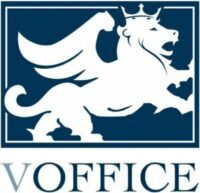Introduction
The Organisation for Economic Co-operation and Development (‘OECD’) continues to support tax authorities globally in chasing persons (and their advisors) who continue to hide their assets/investments overseas and fly under the radar of the tax authorities in their home countries. More specifically, (model) disclosure rules have been issued, which will be discussed hereinafter.
What is CRS?
In short, the Common Reporting Standard (‘CRS’) was developed by the OECD to support annual automatic exchange of tax residents’ financial account information between the authorities of participating jurisdictions. As of October 2016, more than 100 countries have committed to adopt this standard and implement this automatic exchange of information.
On 30 June 2016, the tax legislation on implementing the CRS in Hong Kong came into effect and Hong Kong committed to the first exchange in 2018. As a result, financial institutions in Hong Kong have to collect information as of 2017 and report this to the Inland Revenue Department (‘IRD’) in May 2018. The IRD will exchange this information with overseas tax authorities by the end of 2018 and vice versa. A similar mechanism has been or will be adopted in other CRS participating countries, with varying timeframes depending on when they signed up to the agreement.
Who is affected and what will be exchanged?
In essence, the reporting has to be carried out by financial institutions including banks, insurers, custodians, trustees, brokers, asset managers, intermediaries, and certain collective investment vehicles. The information to be reported in respect of ‘reportable accounts’ includes personal details of the account holder, information relating to the investment income, account balances and sales proceeds from financial assets associated with the account(s) at hand.
Most recent development: mandatory disclosure rules on CRS avoidance
On 9 March 2018, the OECD issued new disclosure rules. Once implemented into domestic law of participating jurisdictions, these would require lawyers, accountants, financial advisors, banks and other service providers to inform tax authorities of certain information. These include any schemes which they put in place for their clients to avoid reporting under the CRS, or preventing the identification of the beneficial owners of entities or trusts.
As a result, it is expected that a broad range of intermediaries will be held responsible for disclosing, to their local tax authorities, the schemes to circumvent CRS and the reporting of structures that hide beneficial owners of offshore assets, companies and trusts.
